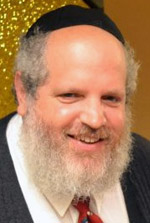Parshat Shoftim – Judges

CARLSBAD, California — This week’s portion is titled, Shoftim, which means Judges. The portion begins with the command to appoint judges in every city. In fact the portion commands that the Jewish people should appoint not only judges but officers as well. The purpose is to insure that law and order will prevail throughout the cities. A firm belief in the necessity of law in society is foundational within Judaism, for without law we are warned in the Talmud, “One man will consume his friend.”
Upon closer examination we find that Judaism gives us clear-cut guidelines of how society is meant to run. Interestingly, several of the pillars of our civilization are mentioned in this portion.
Parshat Shoftim discusses special strictures that applied to a duly appointed King (Melech), Judges (Shoftim) and Officers (Shotrim), Prophets (Nevi’im), and Priests (Kohanim). The role of each of these positions was essential to the healthy functioning of Jewish life in the Holy Land. The single most powerful position was the king, but he had numerous constraints placed upon him meant to curb his power. He was not allowed to attempt to accrue too much wealth or power. He had a special commandment to keep a Torah scroll with him, so as to remind him of the limitations of his office.
In Biblical times there were numerous prophets. When we study the prophets we see that they often had divinely ordained instructions for the Jewish people in general and the king in particular. The priestly class was designated as the segment of the population with the full-time mandate to be utterly focused on service of G-d, to the extent that they did not receive a portion in the Land, so that they would not become distracted by worldly pursuits.
While the king was commanded to be mindful of the Torah and its laws and to lead an exemplary life (leading by example), it was the judges and officers who were entrusted with interpreting and enforcing the law. The Rebbe, Rabbi Menachem Mendel Schneerson of righteous memory, points out that the fact that this portion is named for the judges tells us that in many regards it was their job that was most important.
This understanding is enhanced when we consider what the Sages explain about the mandate given to the judges. The portion states that judges should be placed “by all of your gates.” We are told that this means not only by the gates of your city, but by your personal gates as well. What are our personal gates? Our personal gates are the ways and means through which we relate to the outside world. Our ability to see, to hear, to smell, to taste, and to touch are all our “gates.” We are commanded to place judges there – meaning that we are to be discriminatory as to what we allow in (and out, for that matter) to ourselves.
Are we mindful of what enters and leaves our being? Are we self-aware enough to make sure nothing forbidden enters or leaves the ‘small city’ over which we have been appointed? It is this portion that tells us that we have an obligation to control ourselves in the most profound way possible.
Wishing everyone an uplifting, joyous, and HEALTHY Shabbos!
*
Rabbi Yeruchem Eilfort is Director of Coastal Chabads and Chabad at La Costa. Rabbi Eilfort welcomes readers’ comments and questions and may be reached at RabbiE@ChabadatLaCosta.com.